Five things you need to know about the coronavirus pandemic this Wednesday morning.
Here are five things you need to know about the coronavirus pandemic this Wednesday morning. We’ll have another update for you this evening.
1. Self-isolation cut to seven days with testing
As coronavirus cases surge, and as businesses, health and rail services feel the effects of staff shortages caused by the virus, self-isolation guidance is changing to help minimise disruption. Instead of having to quarantine for 10 days as we’ve come to expect, it’s being slashed by up to three days for people in England. Anyone who is positive for Covid can stop isolating if lateral flow tests return a negative result on days six and seven. There are caveats, however. Read more here.
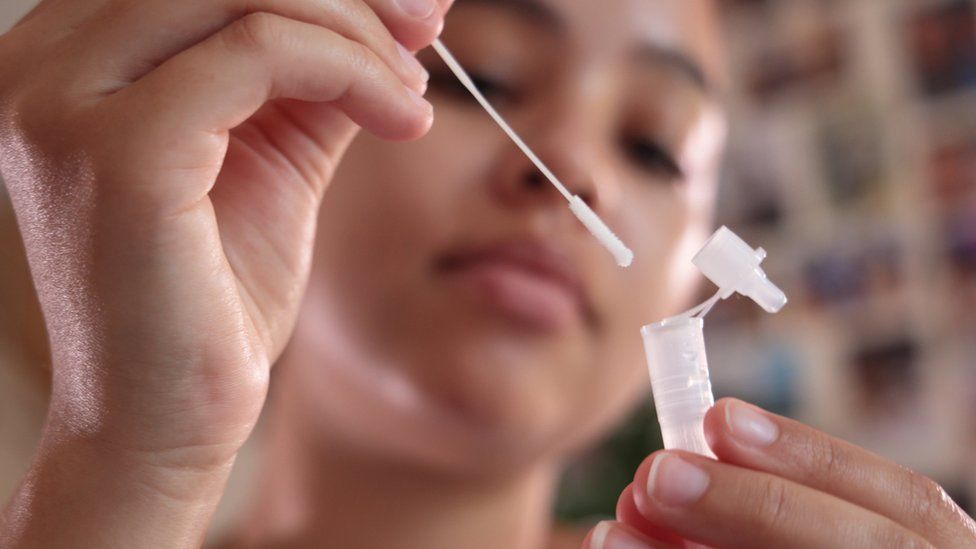
Image source, Getty Images

2. Europe reinstates restrictions
As Omicron’s become the dominant strain in many European countries, some including Germany and Portugal are introducing post-Christmas restrictions. Increased social distancing, limits on people at gatherings and working from home are some of the measures that will come into force. The moves comes as the World Health Organization warns the Omicron surge will push health systems towards the brink of collapse.
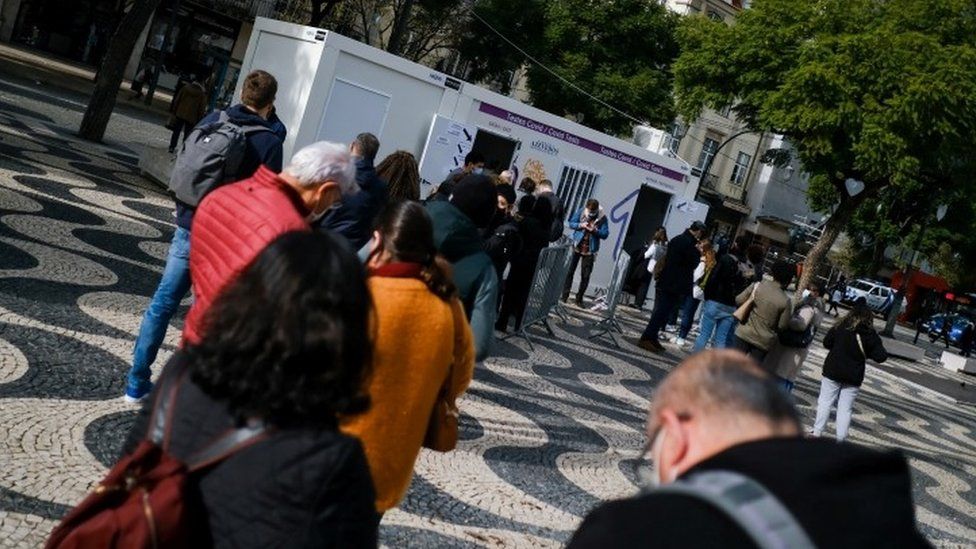
Image source, Reuters

3. Israel’s fourth jab plan
As Israel braces itself for a wave of infections from the latest variant, it’s looking to roll out a fourth dose of the Covid vaccine, making it the first country to do so. The Middle Eastern country’s experts recommend a fourth booster for over-60s and health workers. Prime Minister Naftali Bennett says it will “assist us in getting through the Omicron wave that is engulfing the world”.
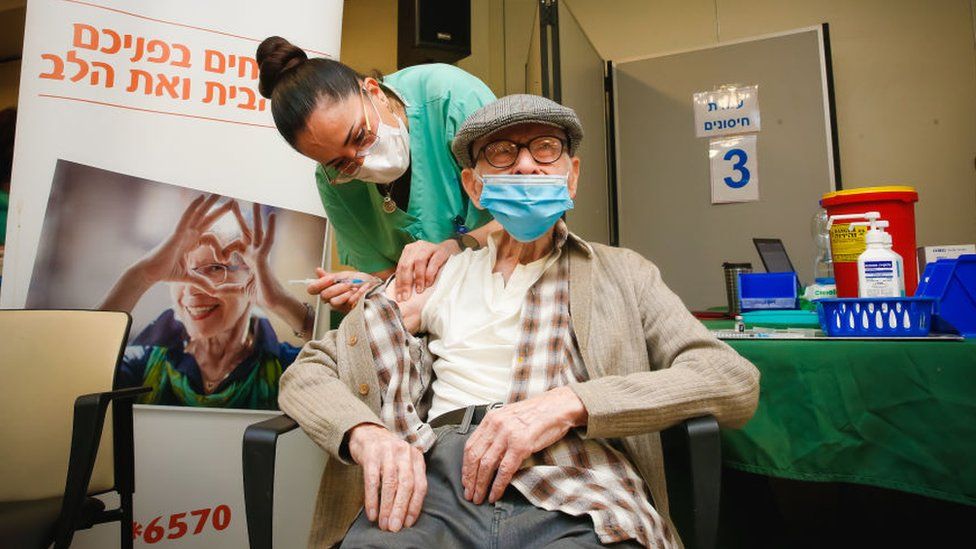
Image source, Getty Images

4. Nasal spray to prevent Covid?
A trial to see whether squirting a blood thinner into the nose could offer protection against Covid is taking place in Australia. The spray, which uses the cheap drug heparin, is being tested to see if it neutralises Covid’s spike protein as researchers say it appears to make a person with the virus non-infectious. If successful, it could be used with vaccines and other measures.
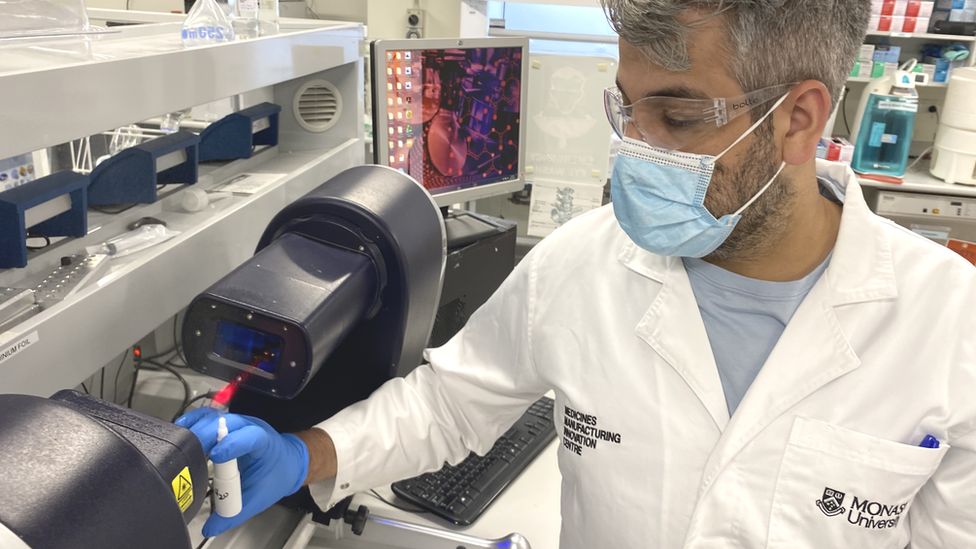
Image source, MONASH UNIVERSITY

5. Seven days of isolation
Photographer Richard Tymon and his family were holed up in a hotel room in Sweden after one of them tested positive for coronavirus. He decided to capture their seven days of isolation in which his wife Claire worked every day, and “playing chess, watching Christmas movies and card games all helped to pass the time”. Take a look.
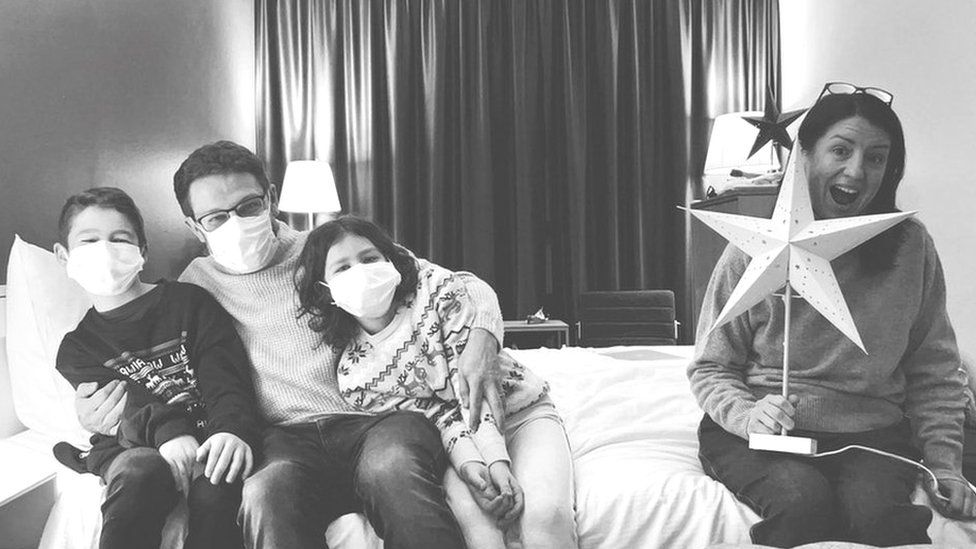
Image source, Richard Tymon

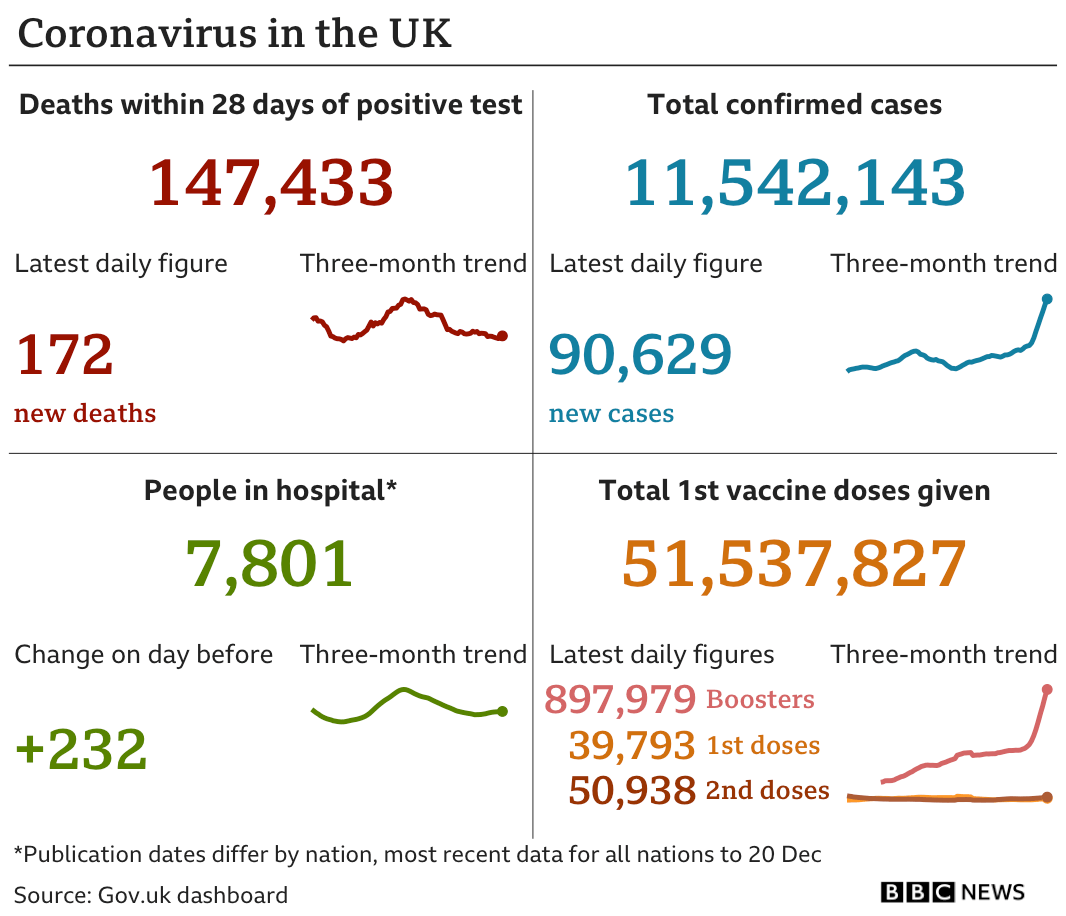
And there’s more…
As Omicron cases rise rapidly, would it be worth introducing tougher measures? Our health correspondent Nick Triggle has investigated, take a look.
You can find more information, advice and guides on our coronavirus page.


Image source, BBC
What questions do you have about coronavirus?
In some cases, your question will be published, displaying your name, age and location as you provide it, unless you state otherwise. Your contact details will never be published. Please ensure you have read our terms & conditions and privacy policy.
Use this form to ask your question:
If you are reading this page and can’t see the form you will need to visit the mobile version of the BBC website to submit your question or send them via email to YourQuestions@bbc.co.uk. Please include your name, age and location with any question you send in.

- EVERYTHING THAT IS YOURS WAS ONCE HERS: A new home with a dark history
- STIEG LARSSON’S MILLENNIUM: An investigative journalist is drawn into an endlessly dark world
